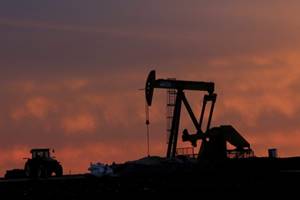With the global crude oil prices rising to six-month high, the finance ministry is considering reducing the excise duty on petrol and diesel to cushion inflation.
After assuming charge in May 2014, the Narendra Modi-led government took the benefit of drastic fall in crude oil prices and hiked the excise duty on auto fuel several times to garner up to `70,000 crore in a full year.
When asked if his ministry is considering revision of excise duty, revenue secretary Hasmukh Adhia maintained that the scenario depends on international market.
“There could be downward revision also. It all depends. It (duty hike) may have given good collections, but we cannot allow inflation to go out of hand. We have to be careful about inflation,” Adhia told FE.
The secretary, however, did not divulge if there is a threshold crude oil price crossing which would force North Block to reduce excise duty on fuel.
The excise duty levied by the centre for petrol is around `21.48/litre an increase of 126.6% against `9.48//litre in July 2014. In case of diesel, it has been hiked 386.8% to `17.33/litre now against `3.56/litre in July 2014.
Recently, Goldman Sachs said supply disruptions from Nigeria, which is Africa’s biggest crude oil producer, would lead to a supply deficit. This triggered the prices to move northwards and touch six-month high.
On Wednesday morning, benchmark Brent for July delivery climbed eight cents, or 0.16% to $49.36/barrel.
Petroleum minister Dharmendra Pradhan maintains that government has passed 60% of the benefit of fall in crude oil prices to consumers while the remaining 40% is being utilised for infrastructure development.
However, the observation made by the the 12th report submitted on May 3 by the standing committee on petroleum & natural gas does not match Pradhan’s claim.
The Standing Committee reports reveals that for the period from July 2014 till February 2016, the Indian basket of crude oil has dropped 71.47% (see graphic). On the other hand, the petrol prices across the metros witnessed a reduction of 18-23%.
“The committee observes that the retail prices of petrol and diesel in the country have not been reduced to the extent of the reduction in international prices as a result of increase in central and state taxes’ component on petroleum products,” the panel said.
The wholesale price index-based inflation turned positive after a gap of 17 months, rising 0.34% year-on-year in April against -0.85% in the previous month, as food and manufactured items turned dearer while deflation in fuel products narrowed sharply.
